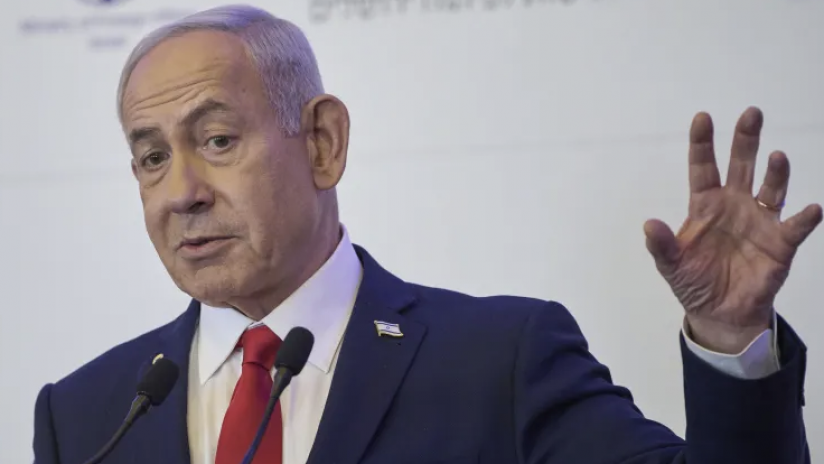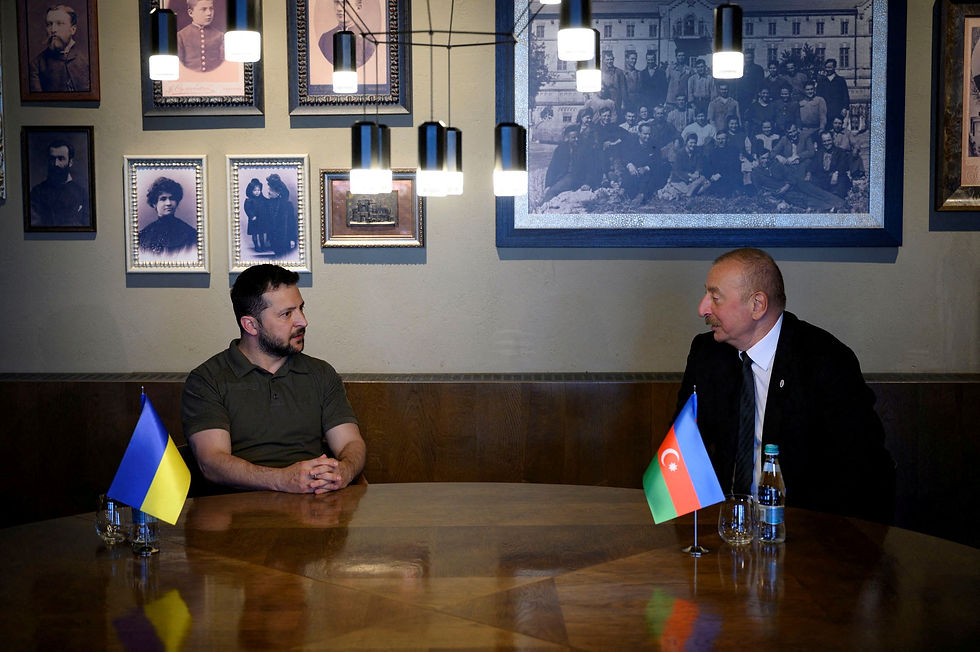Georgia Marks 17 Years Since 2008 War Amidst Deep Political Divisions
- Obyektiv Media
- Aug 11, 2025
- 5 min read

TBILISI – Seventeen years after the devastating 2008 Russia-Georgia War, Georgia remains deeply divided on how to commemorate the conflict, with the ruling Georgian Dream (GD) party and the opposition, particularly the United National Movement (UNM), observing different dates and maintaining sharply contrasting narratives regarding its origin. This year, the anniversary was marked by official ceremonies, public tributes, and renewed accusations between political factions.
Conflicting Observance Dates and International Alignments
While the ruling Georgian Dream party adhered to the traditional August 8 date for remembrance, the opposition initiated their ceremonies on August 7, aligning with most Western capitals that also issued official anniversary statements and visited memorials on this earlier date. The war officially began on the evening of August 7, but August 8 has historically been the widely accepted date of outbreak in Georgia.
On August 8, state flags were lowered on administrative buildings across Georgia, including the Government Administration, Parliament, Presidential Palace, and diplomatic missions abroad, by decree of Prime Minister Irakli Kobakhidze, to honour those who lost their lives. Georgian Dream officials, including Prime Minister Irakli Kobakhidze, GD-elected President Mikheil Kavelashvili, GD Parliament Speaker Shalva Papuashvili, GD Defence Minister Irakli Chikovani, and Tbilisi Mayor Kakha Kaladze, visited Mukhatgverdi’s Brothers’ Cemetery in Tbilisi to lay wreaths and pay tribute to fallen soldiers.
Beyond official observances, Georgians marked the anniversary with quiet ceremonies around the country, laying flowers to honour fallen soldiers and civilians, and forming a human chain near the contact line of South Ossetia, where the war began.
Many Western countries, including Lithuania, expressed unwavering support for Georgia's sovereignty and territorial integrity on August 7. US Senator Jeanne Shaheen reiterated the United States' commitment to standing against Russia's illegal annexation of Abkhazia and South Ossetia, noting that Russia's 2008 invasion of Georgia should have served as a "wake-up call" for the international community regarding its imperialistic intentions.
The Blame Game: Divergent Narratives of the War's Genesis
The 17th anniversary saw a re-intensification of the domestic political blame game concerning the 2008 war.
• Georgian Dream's Stance: GD officials consistently accused the former UNM government, led by Mikheil Saakashvili, of triggering the war and committing "treason". Prime Minister Kobakhidze called August 8 a "tragic date" and "the gravest adventure, a betrayal committed by the then-government," arguing that the war was started by Saakashvili "at the urging of external forces, on orders from the US State Department". He cited the Tagliavini Report and a Council of Europe resolution as "irrefutable proof" that Saakashvili's regime initiated large-scale military operations. GD officials stressed the need for a sovereign government that acts in national interests, not under foreign dictates. They also claimed credit for "preserving peace" and successfully implementing a non-recognition policy for occupied territories.
• Opposition and International Perspective: Most of Georgian society and the entire political opposition blame Russia for starting the war and occupying Georgian territory. Former President Mikheil Saakashvili accused "Ivanishvili's talking puppets" (referring to GD officials) of making statements aimed at "destroying the Georgian state" and called for an "unrelenting, selfless struggle" against the "Russian yoke". The Georgian Foreign Ministry, in its August 8 statement, unequivocally referred to it as "Russia’s full-scale military aggression against Georgia" and called on Moscow to reverse its recognition of Georgia’s occupied territories and fulfil ceasefire obligations.
• International legal bodies, including the International Criminal Court (ICC) and the European Court of Human Rights (ECHR), have confirmed Russia's violation of fundamental norms of international law. Retired US Army Colonel Liam Collins stated that Russia's intervention was not a response, but a pre-planned invasion, with Russian troops already positioned and cyber-attacks commencing weeks prior. He emphasized that the war was driven by Russian imperialism, not NATO expansion, and that the international community and legal community largely agree Russia started the war.
• Russia's Narrative: Russian Foreign Ministry spokesperson Maria Zakharova welcomed Georgian Dream's statements blaming the previous government, expressing hope for "progress in negotiations" within the Geneva International Discussions (GID). Zakharova reiterated the Kremlin's long-standing narrative that the 2008 war was a result of "Georgian aggression," accusing the Saakashvili government of launching an "unprovoked assault on Tskhinvali" and "an assault on the locations of Russian peacekeepers". She urged Georgia to sign a "legally binding agreement on the non-use of force" with Abkhazia and South Ossetia, which she suggested would be a "reliable guarantee" against a repeat of tragic events and a "starting point for moving towards normalization".
• Expert Criticism: Analyst Kakha Gogolashvili described Prime Minister Kobakhidze's statements as a "betrayal of national interests," directly harming Georgia's territorial integrity and its prospects for future reunification. Gogolashvili believes these statements are aimed at preparing Georgian society for the potential recognition of the independence of the occupied territories, pressured by Russia to sign non-use-of-force agreements with Abkhazia and South Ossetia. He noted that international law, including findings from the Hague International Criminal Court and the Strasbourg Court, has ruled out Georgia's responsibility for starting the war.
Lessons Learned and Unlearned
Colonel Liam Collins offered insights into the lessons taken from the 2008 war:
• Russia: Learned not to deploy large conventional forces for invasions, shifting towards "grey zone warfare" tactics (as seen in Crimea and Donbas) and significantly improving information operations, including cyber operations. Russia also learned that creating contested borders is an effective way to prevent countries from joining NATO.
• Georgia: Discovered it had a "very capable military" that fought effectively against Russia's "sheer mass," performing better than expected.
• The West: Collins argued that the West "didn't learn much" from the 2008 war and largely ignored it, which he believes contributed to the subsequent annexation of Crimea, the war in Donbas, and the full-scale invasion of Ukraine in 2022. He criticized the slow response from the US, attributing it to a disbelief that state-on-state warfare could occur in the 21st century.
Collins also commented on the Georgian government's current efforts to assign blame for the 2008 war to the former government, stating it is "not helpful" and serves no good for unifying the country or preparing for the future.
The Plight of Veterans
Amidst the political rhetoric, many veterans of the 2008 August War feel forgotten and neglected by both the state and society.
• Lack of Support: Former soldiers reported feeling that their knowledge and experience are not valued and that they are not invited to state events. Pensions for former soldiers are reportedly very low (e.g., a former company commander receiving 100 GEL in assistance, with a captain receiving 470 GEL compensation for military service).
• Economic Hardship: Many veterans, including high-ranking officers, have been forced to emigrate to find work, taking jobs as taxi drivers in Poland, truck drivers in the US, or construction workers in Europe. Those who remain often struggle to make ends meet, working odd jobs or farming.
• Healthcare Access Challenges: Veterans described facing bureaucratic hurdles and disrespectful treatment when trying to access state healthcare or pension benefits.
• Emotional Toll: Veterans expressed sadness and frustration at feeling invisible, stating that they are only remembered at Georgian feasts for toasts or around the anniversary dates. They maintain that "a soldier does not complain" and does not demand.
• Rejection of "Do You Want War?" Narrative: Veterans strongly condemned the "Do you want war?" question, frequently posed in recent years, as Russian propaganda. They argue that with 20% of the country occupied and Russian troops near the central highway, Georgia is not truly at peace. They believe that the systematic reduction of armed forces and the neglect of veterans are part of a "Russian assignment" to weaken the country.
The ongoing debate and the struggles of its veterans underscore the deep and lasting scars left by the 2008 Russia-Georgia War on the nation, both physically and politically.



Comments